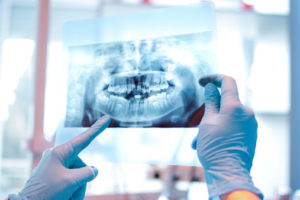Wisdom Teeth

Have questions about wisdom teeth, also known as third molars? Our oral surgeons took some time to share information and answer common patient questions to help educate about what wisdom teeth are and the wisdom tooth extraction process. View the table of contents below to learn more or find your question and get an answer from one of our oral surgeons!

The following content was provided by Dr. Huyen-Chau Dunn, Board Certified Oral & Maxillofacial Surgeon, and has been medically reviewed for accuracy. Some relevant links have been added to audio transcripts to provide resources for additional information.
Table of Contents:
Click on a question below to be taken directly to that answer.
- What are wisdom teeth? What makes wisdom teeth different than normal teeth?
- What happens if I don’t get my wisdom teeth removed?
- Does everyone have wisdom teeth?
- How do I know if I need my wisdom teeth removed?
- Why do most people get their wisdom teeth removed in high school?
- Does it hurt to get your wisdom teeth pulled?
- Does insurance cover wisdom teeth removal?
What are wisdom teeth? What makes wisdom teeth different from normal teeth?
Answer provided by Dr. Huyen-Chau Dunn. Transcript included below.
Dr. Dunn:
Wisdom teeth are the third and last set of molars in our mouths. And what makes them different from other teeth is typically most people don’t have enough room in their mouth for these molars and so they tend to be impacted, meaning that they’re not fully erupted and that can cause potential problems.
What happens if I don’t get my wisdom teeth removed?
Answer provided by Dr. Huyen-Chau Dunn. Transcript included below.
Dr. Dunn:
There’s different levels of impaction. It could be partial, it could be fully impacted, but anytime you have an opening in the gums that leads to these teeth, but the tooth is not fully erupted, bacteria that’s in everybody’s saliva can get down in there, cause infection, condition called pericoronitis, can cause cavities on both the wisdom tooth and perhaps the adjacent tooth as well. And then there’s the potential of cyst formation around the wisdom teeth.
Does everyone have wisdom teeth?
Answer provided by Dr. Huyen-Chau Dunn. Transcript included below.
Dr. Dunn:
Most people have four wisdom teeth, but there are patients who come in with less and there are also patients who come in with extra wisdom teeth, but the last two are usually in the minority.
How do I know if I need my wisdom teeth removed?
Answer provided by Dr. Huyen-Chau Dunn. Transcript included below.
Dr. Dunn:
Not every wisdom tooth has to be pulled. Okay? That’s the first thing. There are a few people who have enough room in their mouth that the teeth are fully erupted. They’re in function, which means that they are straight and they come together nicely so that people actually use and chew with them. And they’re easily cleanable so patients can get back in there, brush and floss and keep them free of cavities. If you can’t do all of those things, then you might have some discomfort back there, you might get cavities back there. Those are all reasons to seek evaluation to get these teeth extracted.
Why do most people get their wisdom teeth removed in high school?
Answer provided by Dr. Huyen-Chau Dunn. Transcript included below.
Dr. Dunn:
Having wisdom teeth removed when you’re younger, you’re going to bounce back from it much easier. And less risk of complications as well. Those teeth typically aren’t fully formed yet in your teenage years, they partially form but not fully, and it’s actually easier to get them out. It’s always, in general, any patient in terms of getting wisdom teeth, it’s easier to get them out when they’re not causing a problem. So in the younger patient population, it’s usually prevention. Right? But we have to take into account the patient based on their age, what kind of medical conditions they have. So as you get older, it’s not ideal to prophylactically take out four wisdom teeth, so an older patient, and I’m talking forties fifties and up, the risk might outweigh the benefit. And so you want to just treat the teeth that are symptomatic.
Does it hurt to have your wisdom teeth pulled?
Answer provided by Dr. Huyen-Chau Dunn. Transcript included below.
Dr. Dunn:
So the actual procedure itself, regardless of whether you choose local anesthesia or laughing gas or oral sedation or full intravenous sedation, one of the things we do is numb you up. So local anesthesia, so you shouldn’t feel any pain during the procedure itself. One of the things we can’t get rid of with the local anesthesia is pressure. So you will feel pressure while the teeth are coming out. But again, it shouldn’t be painful. If it is, let your provider know and they can give you more local anesthesia.
Does insurance cover wisdom teeth removal?
Answer provided by Dr. Huyen-Chau Dunn. Transcript included below.
So most insurance companies do cover a portion of wisdom teeth removal, but it varies depending on the policy. So you need to check with your insurance company and see what coverage you have.

